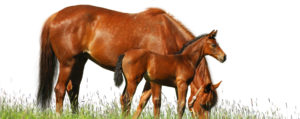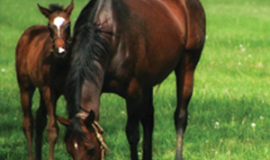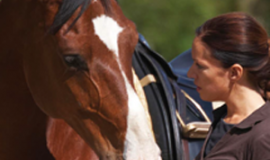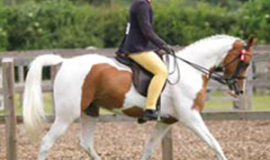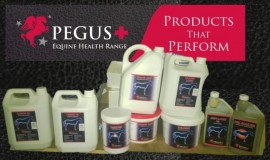A critical period for broodmares
Spring and early summer are a critical period for broodmares. During this time, they give birth and start lactation (milk production). In the same period, they are also covered again and hopefully become pregnant. To obtain the best of results, i.e. a healthy foal with good overall development, and a broodmare that milks well and becomes pregnant again when covered, owners must provide a well-balanced and highly digestible ration.
Nutritional needs change during the different phases of a broodmare’s life. Before the first mating, the mare’s nutritional requirements are similar to maintenance requirements if she is not in training or any type of work. In pregnancy, nutritional needs increase very little over the first 7 months, due to a comparatively low fetal growth rate during this period. During the final third period of pregnancy, however, fetal growth speeds up and nutrient requirements increase gradually from the 8th to the 11th month. This means that energy requirement immediately prior to foaling is about 30 percent higher than for maintenance. Similarly, the need for other nutrients increases, and the requirements for protein, calcium and phosphorus all increase to between 75 and 85 percent above maintenance requirements.
After foaling, milk production increases rapidly and will reach a maximum after 3-4 weeks. At peak of lactation a mare will produce about 3 litres of milk per 100 kg body weight per day. Compared with maintenance requirements, energy requirement is now doubled, and the requirement for protein, calcium and phosphorus increases nearly three times. It is easy to understand that this places very high demands on the quality and composition of the ration.
Fertility is affected by nutritional status.
After foaling the mare must produce milk for the foal, and should in addition have the energy required to come directly into estrus after about 9 days (the foal heat) and then again after 30 days if not conceiving during the foal heat.
If the mare is thin or not fed properly after foaling, both estrus strength and also the mare’s ability to keep a fertilized egg and develop a healthy fetus will become affected. It is therefore important to feed adequately during the latter stages of pregnancy, and thus have a broodmare with good body condition at foaling.
Adequate intake of energy and protein should also be secured when the mare is sent to the stallion for mating. Both nutritional and environmental stress are negatives for a mare’s fertility. Mares with foals are particularly susceptible and are easily stressed in a new environment. We have to put extra effort into creating the best possible environment for mares and their foals, preferably out on good pastures.
Once the mare and foal are let out on pasture for the summer, most people expect that the pasture grass will cover the nutritional needs. However, it remains very important to keep a close watch during the grazing season. Are the mares maintaining good condition? Is the quality and amount of grass decreasing? Broodmares and foals have substantial nutritional needs and should be offered the best of pastures with access to a salt lick, usually one with additional extra minerals.
Use Pegus PC-Horse to balance your mare’s ration
As noted, a mare’s nutritional requirements will change throughout the year. To ensure a good nutritional status for broodmares, the PC-Horse program will help greatly. When you enter the date of mating, PC-Horse will keep track of the stages of pregnancy and calculate nutritional requirements accordingly. After foaling, you should remember to redefine the mare from pregnant to lactating and register the foaling date. This will enable PC-Horse to calculate nutritional requirements according to the mare’s estimated milk production, and you will be able to adjust your feeding to changing conditions.
Contact Pegus Horse Feed 00447710883088 www.pegus.ie info@pegus.ie

